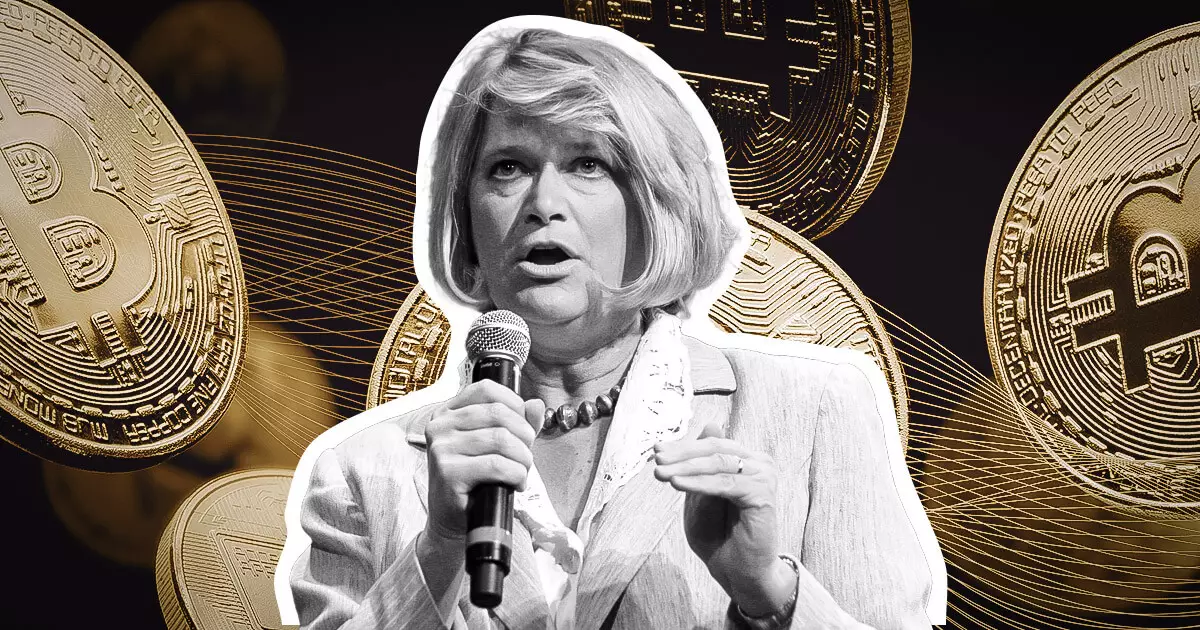Senator Cynthia Lummis has taken a proactive stance regarding the imminent liquidation of 69,370 Bitcoins linked to the notorious Silk Road. In a recent communication directed to Ronald L. Davis, the Director of the US Marshals Services (USMS), Lummis articulated her apprehensions regarding the rationale and timing behind this sale. She argues that such a decision poses significant financial and strategic ramifications not just for the current administration but for future generations of Americans as well. The significance of these Bitcoins extends beyond mere market price; they symbolize an opportunity to fortify America’s financial landscape amidst the evolving cryptocurrency ecosystem. This reflection on the value of digital assets underscores Lummis’s belief that prudent management can yield benefits for decades.
Lummis argues that the liquidation conflicts with broader financial strategies and the potential development of a robust digital asset reserve. The senator emphasizes that decisions regarding these Bitcoins are not merely transactional; they tangibly reflect America’s approach to digital currency and tech-driven financial instruments. The ramifications of liquidating these assets could alter the country’s financial sovereignty, a concept that carries weight given the ongoing shift in global economic paradigms.
The senator also cited concerning historical data regarding previous Bitcoin sales managed by the USMS. Between 2014 and 2023, the agency sold 195,092 BTC for a meager sum of $366.5 million, a figure that pales in comparison to the current market valuation of these assets, which is roughly $18.9 billion. This illustrates a staggering discrepancy that Senator Lummis is keen to highlight: a potential unrealized gain of $18.5 billion. Such figures not only raise questions about financial accountability but also bring attention to the efficacy of current asset management practices employed by government agencies.
The core of Lummis’s argument is that lessons must be learned from previous transactions. The idea of going forward with a sale amid historically poor returns for taxpayers signals a need for a reevaluation of strategies concerning public assets, particularly those as volatile and valuable as Bitcoin. The financial oversight participating in such decisions holds substantial weight when considering taxpayer interests; hence, Senator Lummis is persistently advocating for a more cautious approach.
Moreover, the timing of the proposed Bitcoin liquidation is particularly sensitive, as it clashes with President-elect Donald Trump’s vision for a “National Bitcoin Stockpile.” This initiative aims to retain all Bitcoin currently held or acquired by the US government. Lummis’s contention highlights the critical nature of synchronizing asset management with national interests and policy goals. She expresses concern that the proposed rush to liquidate Bitcoin runs the risk of undermining long-term strategic planning, especially during a period of political transition—a sentiment that also aligns with broader fiscal prudence.
Lummis’s scrutiny extends beyond financial transactions; it encompasses transparency and oversight within federal agencies. The senator’s proactive communication with the FDIC Chair, Marty Gruenberg, touches upon serious allegations regarding the destruction of documents related to digital asset management by the FDIC. Whistleblower claims suggest a troubling culture of intimidation within the agency, calling into question the integrity of internal processes and the accountability of governance in an era defined by rapid technological advancement.
Lummis has underscored the importance of maintaining document integrity, particularly those pertaining to cryptocurrency regulations and oversight of related financial institutions like Signature Bank and Silvergate Bank. Her insistence on preserving communication records and other pertinent documents is indicative of a broader commitment to regulatory transparency in the fast-evolving world of digital assets. The senator’s demands not only bolster the call for accountability but are also a plea for a return to ethical governance free from obstructionism.
In a world increasingly influenced by digital currencies, Lummis stands at the forefront, advocating for robust and responsible asset management practices. Her focus on the balance between safeguarding public interest and maximizing financial opportunities lays the groundwork for future legislative initiatives. As America navigates these uncharted waters of innovation and investment, the sentiments expressed in Lummis’s letters should resonate as a clarion call for thoughtful governance and strategic foresight in policymaking.

